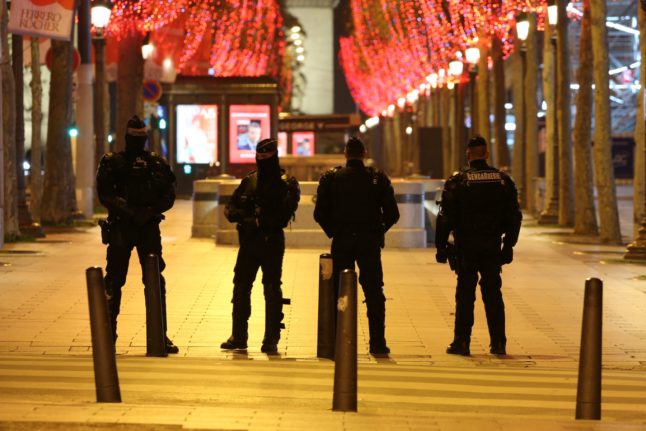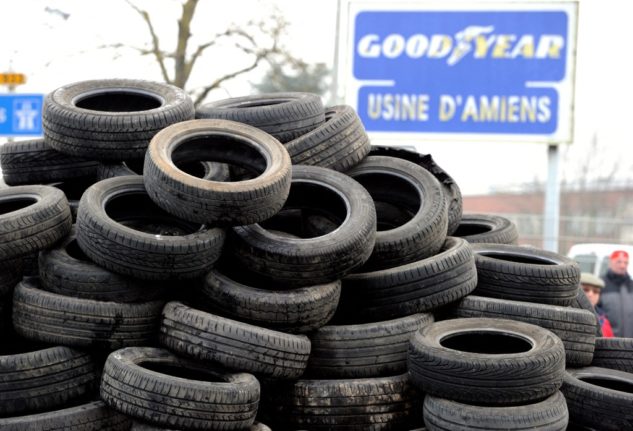Darminin said that the elevated terror threat, “due to what is happening in Israel and Palestine”, necessitated the large nationwide mobilisation for the celebrations.
It’s also a night on which burning cars has become something of a criminal tradition in France – though, the good news is that this appears to be less of an issue these days.
READ ALSO Why do the French set fire to cars on New Year’s Eve?
On top of the 90,000 law enforcement officers, “5,000 soldiers from Operation Sentinel” and “tens of thousands of firefighters” will be on duty overnight on New Year’s Eve, Darminin said.
“The presence of dissuasive law enforcement and the work of our intelligence services are extremely reassuring and effective for our fellow citizens who must continue to live and party if they wish,” he said.
Several départements have already taken special measures to supervise New Year’s Eve. Among them a ban on alcohol consumption on public streets, and restrictions on the sale of fuel or fireworks.
However large events such as concerts and fireworks displays are going ahead as usual in most places, including the traditional gathering on the Champs-Elysées in Paris.
Darminin recognised the efforts of police to ensure a generally peaceful Christmas across France, adding that, “we have December 31st before us”, as he promised an “extremely strong mobilisation of the police and gendarmerie services.”



 Please whitelist us to continue reading.
Please whitelist us to continue reading.
Member comments